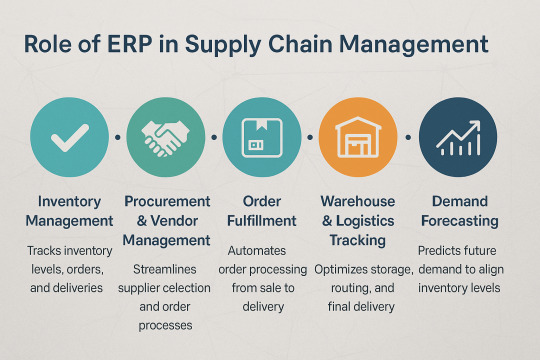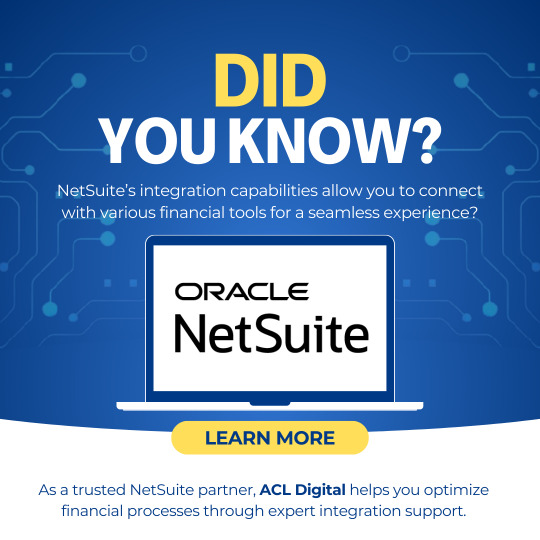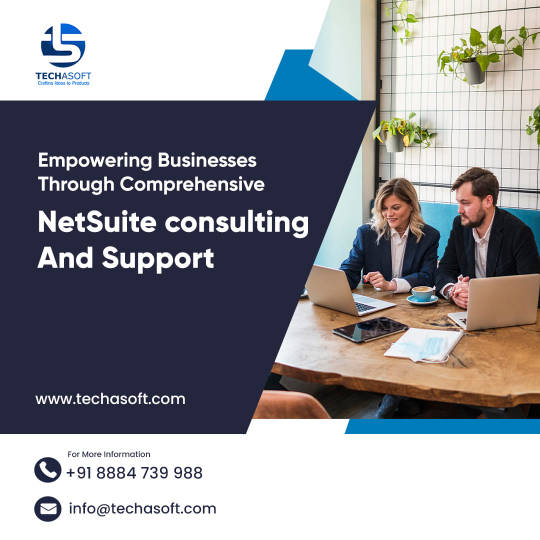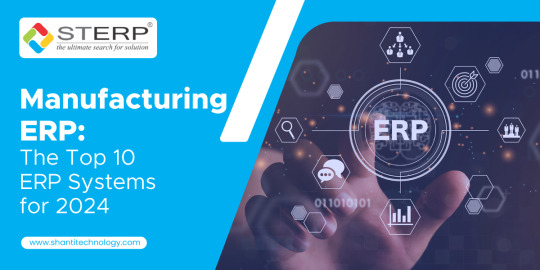#Oracle NetSuite Cloud ERP
Explore tagged Tumblr posts
Text
How NetSuite Cloud ERP Decodes Modern Billing Complexity?

Picture this: you’re billing a client for a SaaS subscription that includes a one-time setup fee plus per-usage API calls, all packaged as one invoice. This is not merely an imagination for India’s services sector. The revenue models are actually mutating. Legacy ERP systems shatter under such pressure and force finance teams to battle with juggling spreadsheets, manual entries, and guesswork. Oracle NetSuite Cloud ERP is not just another tool. It is imperative to the billing processes that need to thrive in the non-linear economy. It provides an absolute DNA rewrite.
The Pitfalls of One-Size-Fits-All Billing
IT services and logistics, healthcare, and financial services are also part of Indian businesses adopting hybrid revenue models.
Subscription + usage: Bengaluru SaaS firm bills clients for data quota as well as a monthly fee.
Milestones + retainers: Mumbai law firm bills clients for milestones achieved along with ongoing advisory retainer fees.
Outcome-based pricing: Delhi-based consultancy bills based on the ROI metric tied to the project.
These sophisticated forms of invoicing are now becoming eerily standard in many industries. However, traditional enterprise resource planning software perennially treats these models as exceptions and not the norm. Finance teams put together invoices using inefficient, cobbled-together solutions prone to errors, significant delays, and even client disputes.
3 - Billing Issues and Tackle Complexity Head On
1. Blended Billing Freedom
Using a combination of subscription, usage, and project-based constituents to create one single invoice is much more than difficult. It is a compliance nightmare and fraught with danger. Oracle NetSuite ERP helps straddle these hybrids.
E-classroom platforms offer courses, admit term qualifications (subscriptions), one-off certification, and allow retake attempts (usage). Leading to a demand for accuracy.
Subscription Cycles: Enrollments with prorated captures for mid-cycle upgrades self-adjust.
Usage tracking: Billed API calls, storage, or transaction volumes are captured directly within the invoices.
Milestone triggers: Automatic billing of clients when predetermined phases of projects hit expected KPIs is available.
Gone are the days of calculation-related drudgery or inaccurate revenues and expenditures being reported.
2. Compliance Innocently Integrated During Transactions
The mixed billing procedure under India’s GST discipline is a complex formula.
Relevant tax rates can be pre-recorded as being auto-applied based on definition per certain specific service or product.
GST-approved invoices can be created along with listed accounts and itemized summary parts of the invoices.
A maximum of three incredibly rigid CA audit satisfactions can be alongside available surveillance history.
For every invoice that is created, compliance can feel like having a billing professional integrated.
3. Real-Time Revenue Recognition
ASC 606 and Ind-AS 115 require specific revenue allocation to be accurately split across deliverables. Kochi logistics firms giving bundled services such as warehousing and analytics must split revenue accurately. Oracle NetSuite Cloud ERP does this dynamically:
Monetize as a milestone is hit or usage is accrued.
Unearned revenue is deferred automatically.
Compliance-controlled reports can be generated for audit or investment queries.
From the CFO’s perspective, this is not convenient. It’s a life-and-death scenario.
Why NetSuite Trumps Legacy Billing Tools?
Broad ERP Solutions makes it a requirement that companies contort to their limits. Oracle NetSuite Cloud ERP contorts to yours:
Single Pricing Catalogs: Centralize management of subscription plans, fees, and usage tiers into one catalog.
Support for Global Currencies: Bill in the following INR, USD, and EUR while reconciling with your base currency.
Configuring India First: GST, TDS, and e-invoicing are baked into workflows.
NetSuite has made the world incredibly easy, while their competitors continue tripping over their self-built walls.
Billing Complexity Isn’t a Problem—It’s an Opportunity
For Indian service providers, having the agility to bill is not merely a business advantage; it is strategic to their very existence. NetSuite Cloud ERP has always been a vital tool for businesses aiming to stay competitive in today’s fast-changing market. SoftCore Solutions proudly holds the distinction of being one of the best Oracle NetSuite Cloud ERP partners in India. Oracle NetSuite Cloud ERP has redefined billing by automating billing tasks into a strategic tool that increases client loyalty and cash flow. Businesses of the future will rely on aggressive billing strategies rather than timid ones.
Frequently Asked Questions
1. How does NetSuite manage GST on complex billing models?
NetSuite applies appropriate GST tax for each line item, charged based on their type, ensuring compliance with regulations.
2. Is NetSuite useful for startups with changing pricing?
NetSuite can support these changes. Start with a basic system and implement more ERP modules as the business grows.
3. Does NetSuite support integration with third-party usage trackers?
Yes. APIs allow connection to IoT devices, APIs, or custom meters to provide real-time data.
4. Where do Indian businesses go to get support for NetSuite billing?
Work with NetSuite partners based in India to customize implementation.
5. Am I allowed to combine subscription services with selling products?
Yes. Oracle NetSuite Cloud ERP automates billing and reporting, consolidating recurring and one-time charges to streamline customer invoicing.
#netsuite implementation#Oracle NetSuite Cloud ERP#Oracle NetSuite Cloud ERP Partners in India#NetSuite Cloud ERP#NetSuitePartners in India
0 notes
Text

It is a software system that helps small business to maintain a optimum inventory levels and adapts insightful reports to help you manage your business efficiently. It also helps you to reduce inventory cost without worrying of overstock or under-stock.
#Cloud POS Solution India#Retail POS Software India#Bar POS system India#Easy to Maintain Billing Data#Restaurant POS in India#Unlocking Efficiency Growth#POS for Oracle NetSuite ERP India#Billing Software for Stores India
0 notes
Text
Expert Oracle Consulting Services for Your Business
Boost your organization’s efficiency with professional Oracle consulting services tailored to your specific needs. From Oracle Cloud to on-premise solutions, our certified consultants provide full lifecycle support—planning, implementation, upgrades, and optimization. We help streamline processes, reduce costs, and ensure compliance. Our team brings years of experience across industries, delivering scalable and secure Oracle solutions. Whether you're a small business or a large enterprise, our flexible engagement models fit your budget and timeline. Partner with us to unlock Oracle’s full potential. Contact us today for a free consultation and discover how our Oracle consulting services can transform your operations.
#oracle netsuite consulting#oracle cloud consultancy#oracle consulting companies#oracle erp consulting
0 notes
Text

What does ERP actually do for supply chains in 2025? Most businesses think of ERP as just a back-office tool—but in reality, it’s quietly become the nervous system of modern supply chains. Here’s how: Inventory Management: ERP helps avoid overstocking and understocking by tracking real-time inventory levels across multiple warehouses. Procurement & Vendor Coordination: Automates purchase orders, monitors vendor performance, and helps maintain healthy supplier relationships. Logistics & Fulfillment: Tracks order status, shipping, and delivery times—ensuring transparency from warehouse to customer. Forecasting with AI: Advanced ERP systems now use predictive analytics to improve demand forecasting and minimize stockouts. The result? 📦 Lower operational costs 📈 Faster response to market shifts 🤝 Stronger supplier networks 💡 Better decision-making with real-time data Whether you're in retail, manufacturing, or distribution—ERP is no longer optional.
#supplychain#inventory management#logistics#netsuite#oracle#erp#erp consulting#cloud erp#techlycodes#technology
0 notes
Text

Ready to take your business to new heights? Dive into the world of NetSuite ERP and watch your business growth! Explore our services: https://lnkd.in/gMN-MXE6 Contact: +91 9035705428
#netsuite implementation partner#netsuite crm#netsuite data migration#netsuite customization#erp software#erp#cloud erp#netsuite erp implementation#erpsolutions#datatransformation#digitaltransformation#oracle#cloudcrm
0 notes
Text
NetSuite customization
NetSuite customization involves tailoring the NetSuite platform to fit the unique needs and requirements of a business. This customization can range from simple changes to complex modifications, and it typically involves leveraging NetSuite's suite of tools and technologies. Here's an overview of the key aspects of NetSuite customization:
SuiteBuilder: SuiteBuilder is NetSuite's suite of tools for customizing the platform's user interface. It allows users to modify forms, fields, lists, records, and workflows without writing any code. With SuiteBuilder, users can add custom fields, create custom record types, customize page layouts, and define custom workflows to automate business processes.
SuiteScript: SuiteScript is NetSuite's JavaScript-based scripting language that allows developers to extend and customize the functionality of NetSuite. With SuiteScript, developers can create custom scripts to automate tasks, customize business logic, and integrate NetSuite with external systems. SuiteScript supports both client-side and server-side scripting, and it provides access to NetSuite's SuiteAPI for interacting with NetSuite data and functionality.
SuiteFlow: SuiteFlow is NetSuite's graphical workflow management tool that allows users to create custom workflows to automate business processes. With SuiteFlow, users can define workflows using a drag-and-drop interface, specifying conditions, actions, and triggers to automate tasks such as approvals, notifications, and data updates.
SuiteTalk: SuiteTalk is NetSuite's SOAP-based web services API that allows developers to integrate NetSuite with external systems and applications. With SuiteTalk, developers can perform operations such as creating, reading, updating, and deleting NetSuite records, as well as executing custom scripts and workflows. SuiteTalk supports a wide range of programming languages and platforms, making it easy to integrate NetSuite with third-party systems.
SuiteCommerce Advanced (SCA): SuiteCommerce Advanced is NetSuite's e-commerce solution that allows businesses to create custom online shopping experiences. With SuiteCommerce Advanced, businesses can customize the look and feel of their online store, as well as integrate with back-office systems such as inventory management, order fulfillment, and customer service.
SuiteCloud Development Framework (SDF): SuiteCloud Development Framework (SDF) is NetSuite's development platform that provides tools and resources for building, deploying, and managing customizations on the NetSuite platform. SDF includes features such as version control, deployment automation, and developer tools for managing customizations across multiple environments.
By leveraging these customization tools and technologies, businesses can tailor the NetSuite platform to meet their specific needs and requirements, thereby maximizing its value and effectiveness for their organization. Let me know if you'd like more information on any specific aspect of NetSuite customization!
No 1 NetSuite solution provider in India
0 notes
Text
Expert in NetSuite Implementation cost, NetSuite Implementation Company.
1 note
·
View note
Text

Using a saved search, you can construct a custom field in NetSuite to dynamically display particular data from your database. In order to make the desired data easily accessible and visible, this procedure entails creating a saved search that extracts the needed information and attaching it to a custom field. By streamlining data administration and reporting, this effective technique enables users to make deft judgments based on the information acquired from their customized fields. Read More: https://www.intelvue.com/netsuite-create-a-custom-field-using-a-saved-search/
#netsuite#erp#erp software uae#erp implementation#erp systems#salesforce#business consulting#school management software#automation#erpsoftware#sapporo#cloud computing#sapconsultant#software#software engineering#startup#crm software#oracle
0 notes
Text

NetSuite is a cloud-based financial management solution that streamlines business operations for companies of all sizes. With its robust suite of features, NetSuite helps businesses manage financials, inventory, orders, billing, and more.
Cinntra is a leading provider of NetSuite implementation and support services, helping businesses optimize their financial management processes and achieve their goals.
Contact us today!
+91-8882709959
#oracle netsuite partners#netsuite erp#netsuite for financial management#erp software#cloud erp solution
0 notes
Photo

✔️ NETSUITE SUPPORT SERVICES ✔️ Empowering Businesses Through Comprehensive NetSuite consulting And Support NetSuite Support Services refer to the range of services provided by Oracle NetSuite to assist users and customers with their NetSuite software implementation, maintenance, and troubleshooting needs. NetSuite is a cloud-based enterprise resource planning (ERP) and customer relationship management (CRM) solution that helps businesses manage their financials, operations, customer interactions, and more. For NetSuite Solutions Specialists - Visit Us 🌐 - https://bit.ly/41DVjyS Call Us 📞 - +91 8884 739 988
#digitaltransformation#software#netsuiteimplementation#netsuitesolutionprovider#netsuitepartner#cloud#netsuite#erp#clouderp#oraclenetsuite#technology#oracle#erpcloud#techasoft#netsuiteerp#netsuiteconsultant#netsuite services#netsuitedevelopers#netsuitecompany
0 notes
Text
Effortlessly Manage Recurring Revenue with NetSuite Cloud ERP

The adoption of subscriptions and recurring revenue models has affected almost every modern business in one way or another. From SaaS platforms, media companies, and professional services, income streams that can be predicted have become the new treasure for financial security. Unfortunately, most legacy systems were never designed to deal with modern billing cycle complexities, usage-based pricing, or automated renewals.
Oracle NetSuite Cloud ERP is positioned to bridge that gap. This sophisticated enterprise resource planning system does not only track transactions but also manages the entire customer lifecycle, actively transforming billing operations from a tactical necessity into a competitive advantage.
1. Flexible Billing for Every Business Model
The good thing about recurring revenue is the convenience that comes along with it. However, that very convenience can be a nightmare in itself without the right tools. Oracle NetSuite Cloud ERP can deal with everything from simple monthly subscriptions to much more complex hybrids that include fixed fees and usage-based components. Take, for example, the case of a software company that needs to bill some customers annually, while other customers are billed quarterly, and there are some who require variable rates based on API calls or storage usage. Traditional accounting systems fail under such strain, but NetSuite excels at it.
2. Subscription Management That Actually Scales:
Managing subscribers can be described as a delicate interplay between insight and precision. NetSuite Cloud ERP handles the proactive revenue optimization of subscriber management, turning reactive firefighting into a streamlined process. The system goes beyond merely accepting payments—it offers a holistic vantage point of all customer relationships. NetSuite flags high-value clients who are in danger of churning before it becomes an issue. It alerts subscription services to offer potential upsells to customers who continuously max out their limits. This level of intelligence for rapid growth businesses is crucial in achieving successful scale rather than drowning in operational complexity.
3. Focus on Royalty and Licensing Management:
Like in the media industry, software development and content platforms also face difficulties managing royalties and licensing fees. The myriads of contracts, their differing terms, payment schedules, and complex profit-sharing formulas create an intricate network of financial responsibilities that is nearly impossible to keep track of manually. Oracle NetSuite Cloud ERP provides a solution for all these headaches. Even more importantly, content creators and partners receive precise payments for their contributions on schedule - improving business relations. If a company’s most precious asset is their intellectual property, there is no suitable alternative to his level of financial clarity.
4. Unified Financials: From Billing to Revenue Recognition:
Ensuring compliance isn’t simple, as miscalculations at this stage can lead to restatements, audits, and loss of investor trust. NetSuite Cloud ERP simplifies compliance at every level by automating deferred revenue, revenue allocation, and amortization schedule management over multiple reporting periods. For publicly traded companies or those looking to go public, convenience matters less than avoiding dire financial threats using compliance regulations that protect investors and regulators.
5. What Makes NetSuite Unique Among Others in the ERP Industry:
Among all enterprise resource planning systems, Oracle NetSuite Cloud ERP sits atop the competition for its inherent grasp of businesses with subscription models. While other systems slap on subscription handling as an afterthought, NetSuite was designed from the ground up to manage the complexities of modern business models. Perhaps most importantly, NetSuite adapts to your business growth, managing everything from a startup's first hundred subscribers to an enterprise with millions of customer relationships. Connecting to an always-changing business world is easier with an ERP system without costly tailoring, and NetSuite stands out among the rest.
In our time, one of the most important changes in business is the shift to recurring revenue models. However, none of this is possible without effort. Oracle NetSuite Cloud ERP Systems will change the situation by automating key processes like billing, customer management, and finances, transforming the concept of recurring revenue into a real competitive advantage. SoftCore Solutions, proudly recognized as one of the best Oracle NetSuite Cloud ERP partners in India, further cements this.
FAQs
1. Can NetSuite handle complex subscription tiers?
Careful management of complex subscription tiers is NetSuite’s strong suit. It fully supports simple and flat-rate subscriptions as well as more hybrid systems with fixed, usage-based, and tiered pricing.
2. Does NetSuite adhere to the revenue recognition standards?
The system inherently complies with ASC 606 and IFRS 15 by automating revenue allocation for different time periods and preserving detailed audit trails for effortless financial reporting and auditing.
3. Where can I search for NetSuite specialists in India?
In addition to Oracle, you can search for local implementation gurus using the network of authorized NetSuite partners in India, as these offer training and ongoing maintenance tailored to your business.
0 notes
Text
Order management system in India
It is a digital procedure to manage the lifecycle process of an customer order and tracks all the information and data including order entry, inventory management, fulfillment of customer desires and after sales service which is visibility to both business and buyer.
#Cloud POS Solution India#Retail POS Software India#Bar POS system India#Easy to Maintain Billing Data#Restaurant POS in India#Unlocking Efficiency Growth#POS for Oracle NetSuite ERP India#Billing Software for Stores India
0 notes
Text
Manufacturing ERP: The Top 10 ERP Systems for 2024
Introduction:
In the dynamic landscape of the manufacturing industry, the right technology can make all the difference in streamlining processes and enhancing overall efficiency. Manufacturing Enterprise Resource Planning (ERP) systems have become indispensable tools for businesses seeking to integrate various facets of their operations seamlessly. As we step into 2024, the demand for robust ERP solutions continues to grow. In this blog, we will explore the top 10 Manufacturing ERP systems that are poised to make a significant impact on the industry this year.

1. SAP S/4HANA: Pioneering Manufacturing Resource Planning System
One of the most trusted names in ERP, SAP S/4HANA stands out as a comprehensive Manufacturing Resource Planning System. Its real-time analytics, integrated modules, and intelligent automation make it an ideal choice for businesses aiming to optimize their manufacturing processes.
2. Oracle ERP Cloud: Empowering Manufacturing Enterprise Resource Planning
Oracle ERP Cloud offers a scalable and flexible solution for manufacturing enterprises. With its robust features, it caters to the diverse needs of businesses, ensuring a seamless integration of manufacturing operations. Its cloud-based architecture provides the agility required for modern manufacturing environments.
3. Microsoft Dynamics 365: A Versatile ERP Solution
Microsoft Dynamics 365 is gaining prominence as a Manufacturing Enterprise Resource Planning software that offers versatility and integration capabilities. Its user-friendly interface and interoperability with other Microsoft products make it an attractive choice for businesses, especially small enterprises.
4. Infor CloudSuite Industrial: Tailored Manufacturing ERP
Infor CloudSuite Industrial is designed with the unique needs of manufacturers in mind. It provides specialized functionalities, including supply chain management and shop floor control, making it a standout choice among ERP solution providers.
5. NetSuite ERP: Unifying Manufacturing Operations
NetSuite ERP is recognized for its ability to unify diverse manufacturing operations into a single, cohesive system. Its cloud-based platform allows for real-time collaboration and data accessibility, making it an efficient Manufacturing Enterprise Resource Planning Software.
6. Epicor ERP: Driving Growth for Small Businesses
Epicor ERP is particularly well-suited for small businesses in the manufacturing sector. With its focus on driving growth and improving efficiency, Epicor ERP offers a cost-effective solution without compromising on essential features.
7. IFS Applications: Comprehensive ERP Solution
IFS Applications is a comprehensive ERP solution that covers a wide range of manufacturing processes. Its modular structure allows businesses to tailor the system according to their specific requirements, making it a preferred choice for Manufacturing Enterprise Resource Planning.
8. IQMS Manufacturing ERP: Enhancing Shop Floor Control
IQMS Manufacturing ERP is distinguished by its emphasis on shop floor control and real-time monitoring. It empowers manufacturers with tools to optimize production processes and make informed decisions, positioning it as a top choice among ERP solution providers.
9. Acumatica Cloud ERP: Scalability for Growing Businesses
Acumatica Cloud ERP stands out for its scalability, making it an ideal choice for growing manufacturing businesses. With a flexible platform and advanced features, Acumatica supports businesses in adapting to changing demands and expanding their operations seamlessly.
10. SYSPRO ERP: Tailored for Manufacturing Success
SYSPRO ERP is tailored to meet the specific needs of manufacturing industries. Its focus on delivering a user-friendly experience and addressing industry challenges positions it as a reliable choice for Manufacturing Enterprise Resource Planning.
Conclusion:
As manufacturing industries evolve, the importance of robust ERP systems cannot be overstated. The top 10 ERP systems highlighted in this blog represent the cutting edge of technology, offering solutions that cater to the unique demands of the manufacturing sector. Whether it's SAP S/4HANA's real-time analytics, Oracle ERP Cloud's scalability, or Acumatica Cloud ERP's flexibility, each system brings its own strengths to the table.
For businesses in Madhya Pradesh seeking Manufacturing Software for Small Business, these ERP solutions provide a pathway to enhanced productivity and streamlined operations. Choosing the right Manufacturing ERP system is a critical decision that can impact a company's growth and competitiveness. Evaluate the features, scalability, and industry focus of each system to find the perfect fit for your manufacturing enterprise. Embrace the power of ERP in 2024 and position your business for success in the ever-evolving landscape of manufacturing technology.
#Manufacturing Software for Small Business#Manufacturing Enterprise Resource Planning Software#ERP Solution Providers in Madhya Pradesh#Manufacturing Enterprise Resource Planning#Manufacturing Resource Planning System#ERP Software#Chain Cycle Management#Business#Engineering#Manufacturing#India#Madhya Pradesh#Go-To-Market#GTM#ERP
7 notes
·
View notes
Text
The Crucial ERP System Examples: Transforming Business Operations

In today’s fiercely competitive business realm, the quest for operational efficiency and streamlined management is paramount. Enterprise Resource Planning (ERP) systems stand tall as technological marvels, revolutionizing the way businesses operate. These robust software solutions amalgamate various functions within a unified framework, enabling seamless coordination across departments and facilitating data-driven decision-making.
This exploration ventures into the realm of ERP systems, shedding light on a spectrum of exemplary solutions that have reshaped modern business operations. From stalwarts like SAP ERP and Oracle ERP Cloud to innovative players like Microsoft Dynamics 365 and Odoo, each system represents a unique amalgamation of features, functionalities, and industry applications.
This comprehensive journey traverses the functionalities, industry adaptability, and transformative potentials of these ERP systems. Understanding their intricacies is pivotal for businesses seeking to optimize processes, unlock efficiencies, and navigate the complexities of today’s business landscape. Join this insightful exploration to unravel the significance and impact of these ERP system examples in shaping the future of business operations.
ERP System Examples
1. SAP ERP: Revolutionizing Business Management
SAP ERP has solidified its position as a leader by providing an all-encompassing suite covering critical business functions. Beyond its core modules in finance, HR, and supply chain, SAP offers specialized applications for industry-specific needs. For instance, SAP S/4HANA, an intelligent ERP, integrates AI and analytics for real-time insights, empowering businesses to adapt swiftly to market changes.
The scalability of SAP ERP is noteworthy, catering to startups aiming for growth and global corporations managing complex operations. It provides modular solutions, enabling businesses to adopt specific functionalities based on their immediate needs.
2. Oracle ERP Cloud: Innovating Operations in the Cloud
Oracle ERP Cloud’s robust suite extends far beyond traditional ERP capabilities. It embraces emerging technologies like AI, machine learning, and blockchain to drive innovation. Its predictive analytics empower businesses to anticipate market trends, optimize supply chains, and mitigate risks effectively.
The cloud-based structure of Oracle ERP Cloud ensures not just accessibility but also scalability without compromising security. It enables seamless integration with other Oracle Cloud applications, fostering a unified ecosystem for comprehensive business management.
3. Microsoft Dynamics 365: Integrating CRM and ERP Capabilities

Microsoft Dynamics 365 is a fusion of CRM and ERP functionalities, providing a holistic platform for businesses. Unlike its core ERP modules, Dynamics 365 offers advanced tools for customer engagement, field service, and marketing automation. Its flexibility lies in its modularity, allowing businesses to tailor their systems by choosing specific applications that align with their objectives.
Moreover, its integration with Microsoft Office 365 and Power Platform strengthens collaboration and data analysis, facilitating informed decision-making across departments.
4. NetSuite: Empowering Diverse Industries
NetSuite’s cloud-based ERP system addresses the complex needs of various industries. Its suite encompasses solutions for financial management, e-commerce, and inventory control. Beyond the core ERP functionalities, NetSuite offers industry-specific modules, such as SuiteCommerce for retail businesses and SuiteSuccess for services, enhancing its appeal across diverse sectors.
The scalability and adaptability of NetSuite make it a preferred choice for businesses experiencing rapid growth or seeking to expand into new markets.
5. Infor ERP: Tailored Solutions for Specific Sectors
Infor’s industry-specific ERP solutions cater to the nuanced requirements of sectors like healthcare, manufacturing, and distribution. In addition to its standard ERP functionalities, Infor focuses on specialized applications such as Infor CloudSuite Healthcare for healthcare organizations and Infor LN for manufacturing, ensuring tailored solutions for sector-specific challenges.
Infor’s commitment to innovation and addressing sector-specific complexities underscores its relevance in the ERP landscape.
6. Epicor ERP: Amplifying Industry Operations

Epicor ERP excels in catering to industries such as manufacturing, distribution, retail, and services. Its core ERP functionalities are complemented by advanced analytics and business intelligence tools. Epicor’s Smart Inventory Planning and Optimization (IPO) tool, for instance, utilizes AI to enhance inventory management, improving efficiency and reducing costs.
Moreover, its agile architecture enables easy customization and integration with third-party applications, providing businesses with a highly adaptable solution.
7. Odoo: Flexibility and Customization
Odoo’s open-source ERP system offers an extensive suite of applications covering CRM, inventory management, project management, and more. What sets Odoo apart is its modular nature, allowing businesses to select and integrate specific applications as per their requirements. Odoo’s flexibility and affordability are especially beneficial for small to medium-sized enterprises seeking customizable solutions without exorbitant costs.
The Value of ERP Systems in Modern Business
ERP systems serve as catalysts for efficiency, productivity, and growth:
Streamlined Operations: Automating tasks streamlines processes, reducing manual errors and optimizing resource allocation.
Enhanced Data Management: Centralized databases ensure data consistency and accuracy, fostering informed decision-making.
Agile Decision-Making: Real-time data access empowers businesses to make agile decisions, staying ahead in dynamic markets.
Customer-Centric Approach: Integrated CRM functionalities enable businesses to deliver personalized services, boosting customer satisfaction and loyalty.
Making Informed Choices: Selecting the Right ERP System

The process of choosing an ERP system involves careful evaluation and alignment with a business’s unique needs. Understanding the scalability, integration capabilities, and industry-specific functionalities of each system is crucial for successful adoption.
Conclusion: Embracing ERP Systems for Sustainable Growth
The landscape of ERP systems continues to evolve, offering businesses versatile solutions to streamline operations, enhance efficiency, and foster sustainable growth. From SAP’s scalability to Oracle’s cloud-driven innovation and Odoo’s customization prowess, each system exemplifies the diverse capabilities shaping modern business management.
Selecting the right ERP system aligned with specific needs remains pivotal for organizations seeking resilience and competitiveness. As businesses strive for optimization and adaptability, embracing these transformative technologies ensures a strategic advantage in an ever-evolving market. It stands as a pillar of efficiency, empowering businesses to navigate complexities and drive success through informed decisions and streamlined operations.
Also Read: A Deep Dive into Corporate Wellness Programs for a Healthier, Happier Workplace
#ERPRevolution#BusinessTransformation#TechInnovation#DigitalTransformation#EnterpriseSolutions#InnovationInBusiness#TechLeadership
2 notes
·
View notes